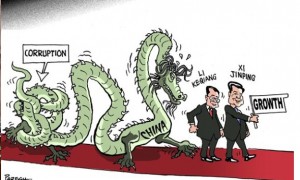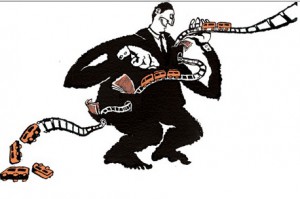PREVALENT MONEY LAUNDERING IN HONG KONG AND MACAU
Andreas Frank’s Conclusions:
The Survey forms part of the biennial 2014 PwC Global Economic Crime Survey on economic crime which involved more than 5,000 respondents from 95 countries worldwide.
Money laundering is more prevalent in Hong Kong and Macau than in most parts of the world, with rates far above the global average, according to an economic crime survey by PwC. In Asia, Hong Kong has the highest reported rate of money laundering and the ninth highest globally.
A poll by the accounting firm found 37 per cent of companies in Hong Kong and Macau, mainly banks and casinos, had experienced money laundering in the past two years. That compared with a global average of 11 per cent, the Asia-Pacific average of 11 per cent, Singapore’s 5 per cent and mainland China’s 4 per cent.

Hong Kong had the highest reported rate of money laundering in Asia and the ninth highest globally, behind Britain, South Africa, the Czech Republic, Russia, Zambia, Australia, Kenya and Ukraine.
PwC polled 5,128 company executives from 95 countries and territories, including 116 respondents in Hong Kong and Macau, of whom 49 per cent worked for listed companies.
It was the first time the survey, which began in 2001, took a substantive look at money laundering in Hong Kong and Macau.
“The concentration of financial services in Hong Kong and gaming in Macau drives the significance of money laundering in the local marketplace,” said John Donker, the lead PwC partner in forensic services for China and Hong Kong.
“The No1 concern found among financial services companies globally is money laundering. In Hong Kong, it is one of the top concerns.”
PwC’s poll found 27 per cent of financial services companies globally had experienced money laundering.
On Monday, a Hong Kong court found Carson Yeung Ka-sing, owner of English soccer club Birmingham City, guilty of laundering HK$721 million through Hong Kong bank accounts.
This case was a more substantive target prosecuted under the recent money laundering legislation. “It is important that targets are carefully selected to make sure the big fish, not the minnows, are selected”, Steve Vickers, chief executive of Steve Vickers Associates, a Hong Kong risk consultancy said.
The two previous major cases of money laundering in Hong Kong involved an elderly woman and a young man, and both of them received prison terms, Vickers noted.
A new law against money laundering and terrorist financing took effect in Hong Kong in 2012. Courts convicted 140 people of money laundering last year, 166 in 2012 and 246 in 2011. The government recovered HK$639.74 million of laundered money last year, HK$23.6 million in 2012 and HK$1.6 billion in 2011.









